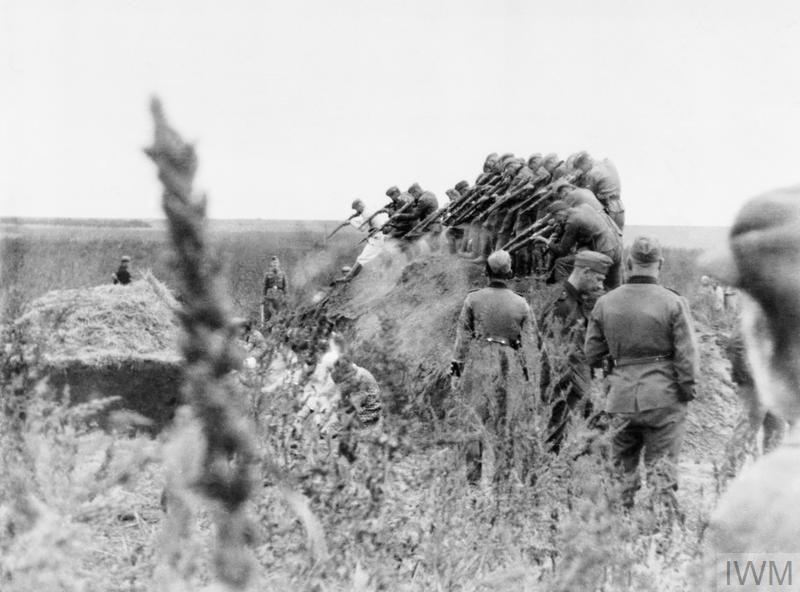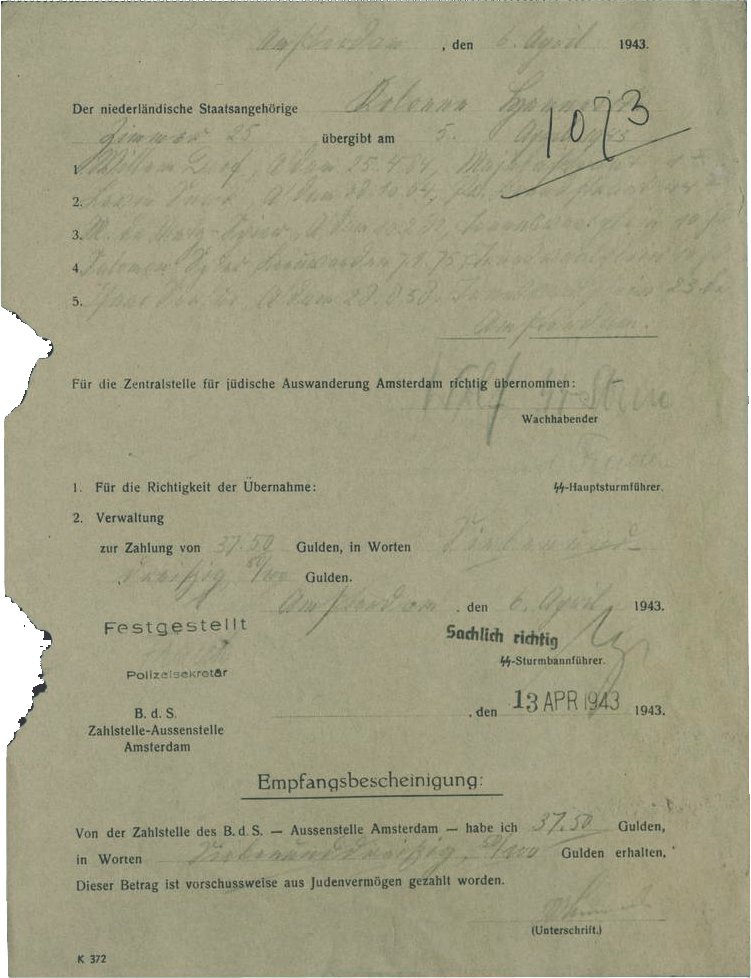During the Second World War, the Nazis murdered nearly six million European Jews. This genocide is called the Holocaust. Here, you can read about its causes and backgrounds, the stages of the Holocaust, and the perpetrators.

www.annefrank.org
The other victims of the Nazis
The Nazis did not just kill Jews during the war. Their political opponents, Jehovah's Witnesses, the handicapped, homosexuals, Slavs, and Roma and Sinti were also murdered on a large scale. Nevertheless, the murder of the European Jews takes a special place. Numerically speaking, they were the largest group of victims. Moreover, the Nazis set out to exterminate the entire Jewish people.
The only other group they intended to wipe out as a whole were the Roma and Sinti, although the Nazis were slightly less fanatical in their persecution. They murdered 200.000 - 500,000 Roma and Sinti from Germany and the occupied territories. The Roma and Sinti call this massacre
porajmos, 'the devouring'.
Who were the perpetrators?
The main perpetrators of the Holocaust were the Nazis who planned and carried out the mass murder. Still, they could never have done this without the support and help of millions of Germans and others. Virtually all government agencies were complicit to some extent. There was little protest from the population, although it should be noted that the Third Reich was a dictatorship without free speech.
The allies of Nazi Germany were often guilty of killing Jews themselves or of deporting them to Germany. In some cases, they succumbed to German pressure, in others, they did not deport their own citizens, but only Jews with foreign passports.
Declaration of reporting five Jews by the Henneicke Column in Amsterdam for a fee of 37.50 guilders on 6 April 1943. Four of the Jews turned in to the SS were murdered in Sobibor on 16 April 1943.
Collection: Joods Historisch Museum, Amsterdam
Throughout the occupied territories, there were numerous collaborators, who reported Jews to the Germans or helped the Germans to find Jews in hiding. Government agencies often followed the orders of the Germans and cooperated in the arrest and deportation of Jews. Sometimes they did so in order to prevent worse from happening, but their actions often had fatal consequences for the Jews. In Eastern Europe, some people sided with the Germans to join them in the fight against the hated Soviet regime. The Germans sometimes recruited personnel for the extermination camps among Soviet prisoners of war, for whom this was their only chance to escape death.
People collaborated with the Germans for a variety of reasons. Antisemitic ideas often played a role, but not always. Some people had personal scores to settle. Others reported Jews out of greed, hoping that they would be able to seize their possessions. Fear of the Germans sometimes kept people from helping the Jews.
Who knew about the Holocaust?
It is difficult to determine how many people knew that the Jews were being murdered during the war. Few will have realised the full extent of the Nazi crimes. Yet in many cases, the population was aware of what was going on, at least to some extent.
In Germany, the plan to murder all Jews was officially a secret, but due to the enormous number of people involved, rumours started circulating before long. Soldiers stationed in the east wrote about the executions in their letters home and took photographs. Many others were involved in processing the Jewish possessions that were left behind after the deportations.
The Germans did not know as much about the extermination camps. Their existence was deliberately kept secret from the outside world. Still, the local population near places of execution, ghettos, and camps knew what was happening. In the rest of the occupied territories, this knowledge was less public, although it was clear that deportation to the so-called 'labour camps’ did not bode well for the Jews.
Reports on the murder of Jews reached the Allied countries from 1942 onwards, but the effect was limited, partly because they were often based on ‘hearsay’ and they reached the other side of the ocean with great delay. Besides, the Nazi crimes were so inconceivable that few could believe that the reports were not exaggerated. Only when the Allies liberated the concentration and extermination camps did the world fully realise the extent of the crime that had taken place.




